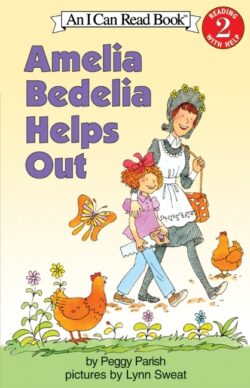“Literal thinking” can be difficult for many of our kiddos to overcome. With help, many people with autism can learn to understand jokes, sarcasm, and figures of speech—and even use them themselves.
Using figurative language in silly ways is one easy way to help teach our kiddos. In a low-pressure context (such as the dinner table), describe a story that didn’t happen or a view you don’t hold. Let your kiddo make a game of guessing whether you’re serious or not.
- Children enjoy outrageous stories, like the time you rode a T. Rex away from the meteorite that made the dinosaurs extinct. If you’re getting giggles, it’s going well.
- Say things that are obviously wrong. For example, use a silly voice say “Happy 79th birthday!” to your hubby, while your kiddo is in the room. When corrected, continue being wrong. (“Oh, that’s right, she’s not 79. She’s 89!”) This will elicit some laughs.
- For older children, teens, and adults, pretend to hold a viewpoint that is uncharacteristic of you (e.g. “Oh, I hate Star Trek. It’s no good at all”). If your teen doesn’t seem to get it, give more and more ridiculous reasons.
- Avoid jokingly criticizing your kiddo, something they did, or something they hold dear to them. They might not realize that you aren’t serious, or feel confused about if you’re joking, and start feeling very hurt and upset. For example, if they love Star Trek, then you might want to joke about disliking dogs or video games instead.
Encourage their experimentation with figurative language. Don’t be surprised if your kiddo begins to spontaneously use jokes, sarcasm, and metaphors. Show your appreciation for their wit, even if it doesn’t make much sense to you. They’re still learning. Making bad jokes is part of life. Many neurotypical children invent jokes that make no sense. For example: “Knock knock.” “Who’s there?” “Apple.” “Apple who?” “Apple on the ceiling!” It takes time to learn how to construct a surprising and well-thought-out joke.
Don’t be surprised if they are confused. Demonstrating patience and respect will tell your kiddos that it’s okay to ask for clarification and make mistakes. An accepting environment allows them to take risks and learn more.
make mistakes. An accepting environment allows them to take risks and learn more.
Amelia Bedelia Books are great books to help with literal thinking.

